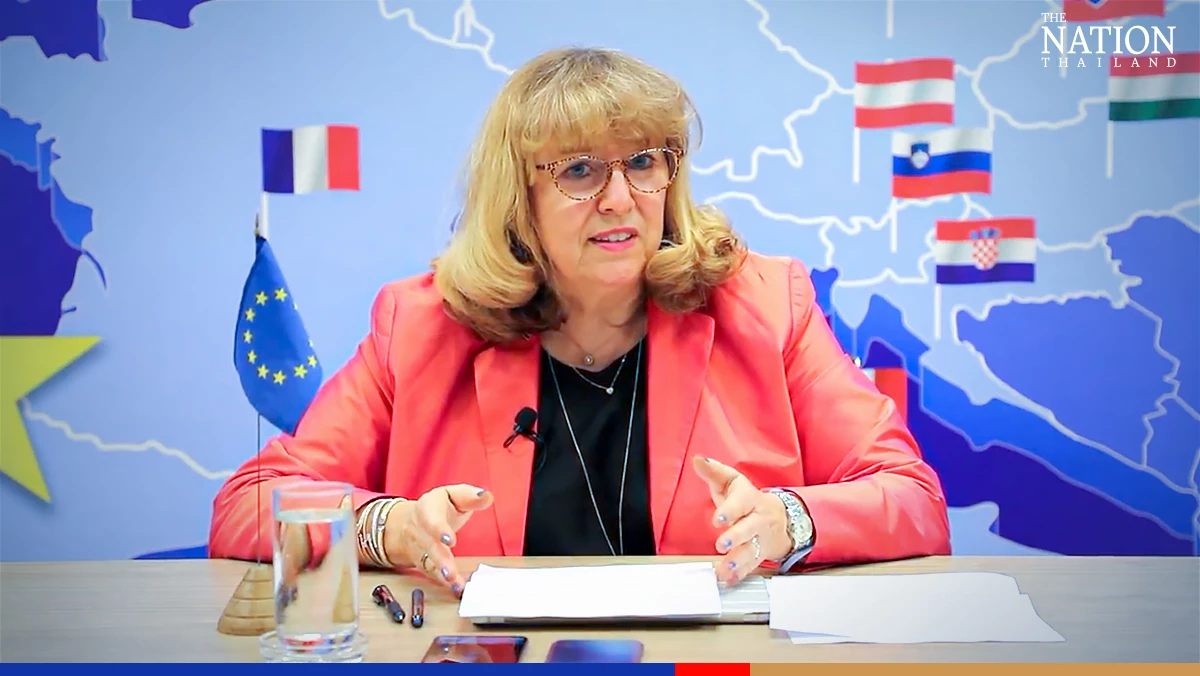United Nations Secretary-General António Guterres has announced the appointment of Astrid Schomaker of Germany as the next Executive Secretary of the Convention on Biological Diversity (CBD).
She brings extensive experience in international relations and negotiations, deep knowledge of the global sustainable development agenda and multilateral environment agreements, and of policymaking on global environmental issues.
In the official announcement, the Secretary-General extended his appreciation and gratitude to David Cooper of the United Kingdom, who will continue to serve as Acting Executive Secretary until Ms. Schomaker assumes her functions.
Mr. Cooper, who has led the CBD Secretariat since February 2023 congratulated Ms. Schomaker on her appointment. “We are excited for the future and welcome her in her new role in this crucial moment of implementing the Biodiversity Plan,” he wrote.
At the helm of the Secretariat of the world’s foremost Multilateral Environmental Agreement on biodiversity, the newly appointed Executive Secretary will work with the Parties to the CBD to translate the landmark Kunming-Montreal Global Biodiversity Framework (the Biodiversity Plan), adopted in December 2022, into action at all levels. Protect and restore, prosper with nature, share benefits fairly and invest and collaborate—the four goals of the Biodiversity Plan—will shape the new UN Biodiversity chief’s priorities.
Awaiting the freshly appointed Executive Secretary is the 16th Meeting of the Conference of the Parties to the CBD (COP 16), which will take place from 21 October- 1 November 2024 in Cali, Colombia. By the time they meet in Cali, Parties to the Convention are expected to submit revised National Biodiversity Strategies and Action Plans (NBSAPs) that are aligned with the Biodiversity Plan.
As part of her high-level advocacy role, the next Executive Secretary will bring impetus to ongoing efforts to forge agreement among the Parties on a robust monitoring and reporting framework and on securing the means of implementation of the Biodiversity Plan.
In the lead-up to COP 16, Parties are expected to move towards closing the biodiversity finance gap, with the first milestone of increasing total biodiversity-related international financial resources from developed countries to at least US$ 20 billion per year by 2025. Since Parties have only a few years to achieve the targets of the Biodiversity Plan (due in 2030), additional and adequate financial resources are needed in addition to those already mobilized through the Global Environment Facility (GEF), including the recently established Global Biodiversity Framework Fund.
Ms. Schomaker will also lead the CBD Secretariat’s work, and facilitate the Parties’ negotiations, on Access and benefit sharing (ABS), a crucial issue that lies at the core of the Biodiversity Plan. At COP 16, Parties are expected to agree on operationalizing the multilateral mechanism for the fair and equitable sharing of benefits from Digital Sequence Information on genetic resources, including a global fund. Negotiations in preparation for this will be held in Montreal in August of this year.
Opened for signature in 1992 at the Earth Summit in Rio de Janeiro, and entering into force in December 1993, the CBD is an international treaty for the conservation of biodiversity, the sustainable use of the components of biodiversity and the equitable sharing of the benefits derived from the use of genetic resources.
With 196 Parties, the CBD has near universal participation among countries. The CBD seeks to address all threats to biodiversity and ecosystem services, including threats from climate change, through scientific assessments, the development of tools, incentives and processes, the transfer of technologies and good practices and the full and active involvement of relevant stakeholders including indigenous peoples and local communities, youth, women, NGOs, sub-national actors and the business community.
The Cartagena Protocol on Biosafety and the Nagoya Protocol on Access and Benefit-Sharing are supplementary agreements to the CBD. The Cartagena Protocol, which entered into force 11 September 2003, seeks to protect biodiversity from the potential risks posed by living modified organisms resulting from modern biotechnology.
To date, 173 Parties have ratified the Cartagena Protocol. The Nagoya Protocol aims at sharing the benefits arising from the utilization of genetic resources in a fair and equitable way, including by appropriate access to genetic resources and by appropriate transfer of relevant technologies. Entering into force on 12 October 2014, it has been ratified by 141 Parties.

